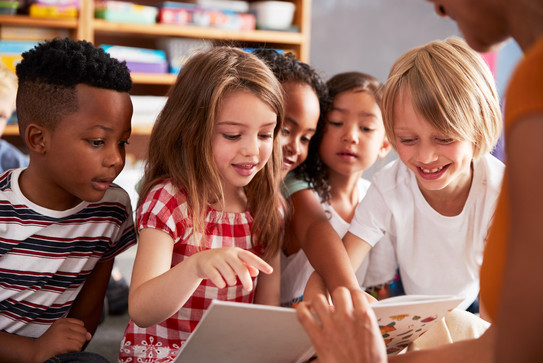Empirical Educational Research in Primary and Secondary Education
The working group conducts research on the assessment, explanation, and improvement of learning processes and is particularly concerned with the question of how students can be best supported to successfully pass through the education system under conditions of increasing heterogeneity. To this end, we use data from large-scale assessment and educational studies as well as data from field-experimental intervention studies (including video analyses).
The research of the working group can be categorised into three interlinked focal points:

1. Diagnostics and development of school-related language proficiency and domain-specific competences:
Against the backdrop of the increasing proportion of multilingual students, we deal with the assessment of language proficiency in monolingual and multilingual students, among other things. In particular, we plan to develop digital tools that are suitable for computer-aided learning progress assessment.
2. Professional competences of (prospective) teachers for dealing with a heterogeneous student body:
We focus on the beliefs and stereotypes of (prospective) teachers as well as their professional knowledge. Of particular importance here is work on the professional development of teachers and educators in the field of subject- integrated language support in all-day schools, such as in the ongoing KoPaS project.
3. Analysis and improvement of (linguistic) classroom interactions:
The guiding principle for this area of work is the question of how language learning environments should be designed and for which students they prove to be particularly effective. We are concerned with the differentiated assessment of language-promoting classroom interactions and their effects, e.g., on classroom participation or the domain-specific and language-related learning of pupils. Current work deals, for example, with the assessment of linguistic modelling techniques or the effects of language-stimulating teacher questions.





![[Translate to English:] [Translate to English:]](/storages/ifs-ep/_processed_/8/5/csm_AdobeStock_412860748_9a2dbb816c.jpeg)